SANCTUARY STARS: “I’ll miss the bears playing in the sunshine and the most dedicated team I have ever worked with.”
17 June 2016
From three little cubs to a sanctuary caring for almost 150 bears – departing Vietnam Bear and Vet Team Director Annemarie looks back over her time with Animals Asia.
Name: Annemarie Weegenaar
Position: Bear and Vet Team Director Vietnam
Time spent with Animals Asia: 10 years
Location: Vietnam Bear Rescue Centre, Tam Dao
Can you describe your career with Animals Asia to date?
I started as a Bear Manager at our China sanctuary where I soon heard I would be heading to Vietnam as the Senior Bear Manager to be part of a team that would establish the Vietnam Bear Rescue Centre. For a short period I helped out remotely from Singapore but soon wanted the more direct contact with the bears and team again and returned to our China sanctuary. When an opportunity came up to head back to Vietnam in 2010 I happily accepted as this is where my heart was. I have been overseeing the bear and vet team ever since.
Can you outline a typical day in running the sanctuary?
There is no such thing as a typical day when you work with animals ;). At 8am the bear managers and I meet with team leaders and supervisors to discuss bear movements, training, maintenance issues and staff issues. I briefly catch up with others in the bear and vet team as needed before returning to the office to respond to emails.
I am in regular contact with country offices and our communications team to provide more information on individual bears for sponsors, funding appeals, donor visits and so on.
I oversee the bear diets and place food orders accordingly. And at times I still work in a bear manager capacity as well which means I spend time at various bear houses, ensuring protocols and enrichment calendars are followed correctly. Sometimes individual bear behaviour can need special attention, while staff training is an ongoing process.
Generally my role involves a lot of office work – but whatever happens, I always make sure I get out of the office to see the bears at least once a day. The bear managers are great at calling when a bear is up to something fun, whether it is a good wrestle with a friend, a fun splash in the pool or discovering a new enrichment toy. There is nothing better to clear your head than seeing happy bears.
You are leaving after 10 years, this summer. How does that feel?
Incredibly sad. It was the hardest decision I have had to make in a long time but I knew this day would come. I love my job, the work with the bears and the teams – it has been the most satisfying 10 years. But I am also incredibly excited about what lies ahead.
Can you explain how the sanctuary has changed and grown during your time?
It has grown from a small office at the front of the national park with three little cubs next door in a makeshift “den” to this huge, green, beautiful sanctuary with four double bear houses and a cub house to accommodate 148 bears. I am so pleased to see that some of the team members I recruited in those early days are still here with us today. Dao Chau Tuan looked after Mama and Moggy when they were rescued and he has since moved into a more senior position as Bear Team Supervisor. And Do Thi Sau who helped us care for our first three cubs Mara, Mausi and Olly and Sau is still with us today too.
What are you most proud of?
In 2008 we unraveled the horrors of bear bile farming in Quang Ninh where around 300 bears were still being extracted of their bile, with 80 bears illegally being kept. After an initial rush of excitement that we were about to rescue those 80 bears, it soon became very obvious that we had to invest a lot more work into Quang Ninh to get the support from both the local and central government to have the farmers hand over their bears.
That incredible moment finally came in 2015 when we were told that we could rescue all remaining bears from the whole province. I felt so proud of our amazing Animals Asia team for their perseverance and support and the fact they never gave up on those bears.
I am also incredibly proud of the care our bear and vet team provide. These bears have suffered so much and everyone in the team goes the extra mile to make sure the bears heal, recover and enjoy this second chance in life. They are the most experienced, dedicated and hard-working team and it makes me proud to be part of it.
When a bear arrives in a bad way - is there time for emotion? Or is the focus always on "getting to work" to fix him/her?
Often it is too busy to stop and get emotional when bears arrive. Those feelings often come afterward, when the bear has safely been moved into quarantine and you get to observe the real damage. The open sores on their body, missing limbs, their malnourished bodies, their sad and often frightened eyes, seeing the bald patches and scars on their forehead from repetitive rubbing against the bars. I try to tell them that all will be much better from here onward and try to forget what the farmers have done to them over all those years.
Is there a bear or a bear story that you love or sticks with you and inspires you?
So many bears you meet touch you in a special way. But if I had to choose one, it has to be Vandrew. It was his incredibly skinny body that shocked me, and the missing right leg, from being caught in a snare from the wild, and the severe rub marks on his forehead. Seeing him slowly change into a lovely, calm and healthier looking bear who was quick to make friends with much younger bears really touched me. Vandrew loved going outside and the pool was his favourite hang out. And seeing him play with a flirty Maggie made me smile, knowing that Vandrew really had embraced his new life to the fullest.
How much time do you get to watch the bears each day? Are you constantly on "rounds" enclosure to enclosure or does the office compete for your time?
Our bear and vet team all work together to care for and observe our bears and they are so experienced and knowledgeable, there is little need for me to be on rounds. If one of our bear managers is on leave, I will cover their bear areas, overseeing the teams and observing the bears – which is a great way to stay in touch. But over the years the job has mostly grown into an office-based position.
How does it feel to see "mended" bears playing happily in the sun?
It brings real happiness and at times still gets me very emotional. It still amazes me, how they can recover so well after all those years of neglect and abuse.
Vietnam Bear Rescue Centre has incredible experience in terms of cub care. This has come during your time. Can you explain how that has come about and the advances you have made?
It was a steep learning curve when we rescued Mara, Mausi and Olly in 2007 and other cubs in the years after that. We received a lot of guidance from other NGO’s like Free the Bears who had hand raised cubs. They shared information on diets, growth expectations, housing and much more. Over time we refined our care for cubs and put together manuals for the Forest Protection Department to ensure when cubs were confiscated, they could follow the feeding guidelines until we received approval to rescue the confiscated cubs.
It made a huge difference to rescue well-nourished cubs instead of the scrawny little cubs we first laid eyes on in Dien Bien in 2007. Cubs had to be kept separate from the adult bears but with limited space we often converted areas in much needed facilities to cub housing until we were able to build a house designed specifically for cubs which we completed at the end of 2011. The house is set up so well that we can manage two month-old cubs all the way up to older juveniles until they are ready to be moved to a double bear house.
The cubs are incredibly cute - how does it feel when you see them for the first time when they are so disorientated and traumatised?
I always feel a lot of sadness when we receive a call that a cub needs to be rescued. They would have been born in the wild and their mother was most likely killed in front of them. If that wasn’t traumatic enough, they would then get stuffed in a bag or a tiny mesh cage and end up in the trade, either on their way to a bear bile farm or on the menu of a restaurant. When they come in they are terrified, often malnourished and at times even injured too. It’s heartbreaking thinking what they have gone through, and that their 30+ years of freedom have been ripped away from them by a poacher supplying a horrendous trade in wildlife.
You were at the sanctuary when it was almost closed down by the government - how did that feel?
It was the most stressful time for us all. Not knowing what would happen to our centre, would we need to relocate – meaning moving all our bears into cages for the unforeseeable future until we had raised further funds to build a sanctuary elsewhere? And not being able to assure our staff that they would have a job as we might need to move to another province and they might not be able to move with us.
But at the same time it was an overwhelmingly positive time too, seeing people from all around the world who supported us, that very much included people from within Vietnam who did everything they could to convince the government that we should be able to stay in Tam Dao.
When I received a phone call from our Country Director Tuan to say that we had received the news we could stay in Tam Dao I cried. A real sense of happiness and relief washed over all of us who had worked so hard to build up the sanctuary over the years.
What have been some evolving challenges for you?
Caring for previously farmed bears with so many issues and raising funds is a year round challenge. As more bears get rescued, the cost to care for these bears continues to increase. It takes thought and effort to find savings wherever possible, and some of these changes have caused me to lie awake at night, worrying what the consequences would be for the bears and our staff.
The welfare of the bears, safety and staff have been my top priority and I am glad to say that all in our team have been very supportive and creative in making savings, and we have managed to maintain a very high standard of welfare for our bears. Staff morale has been challenging but everyone has been very understanding of the situation and I’m happy that our work is contributing to the final end of bear bile farming in Vietnam.
What will you miss most?
Seeing the bears play out on the grass and working with the most dedicated team I have ever worked with. Animals Asia is in my eyes a leader in animal welfare and I still find it hard to imagine I will ever find an organisation that will come close to the work we do here.
BACK
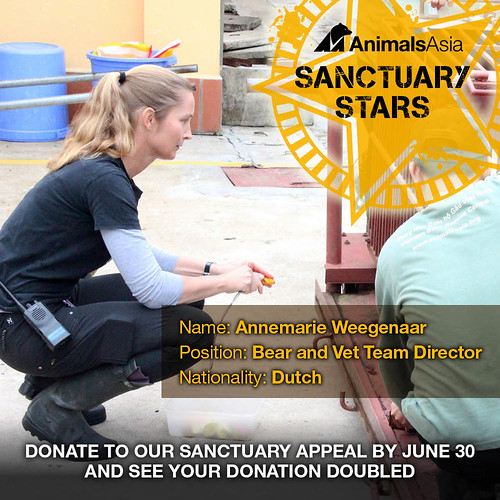
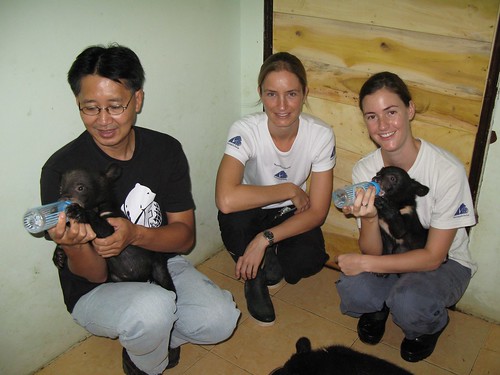
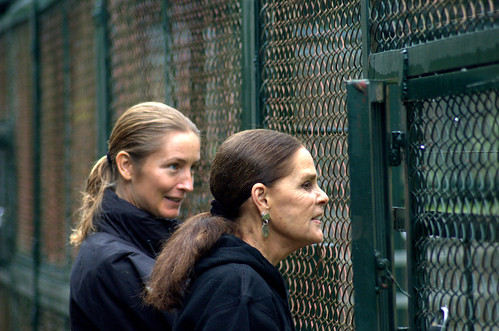
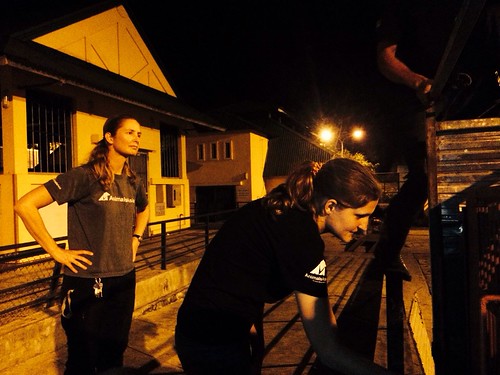
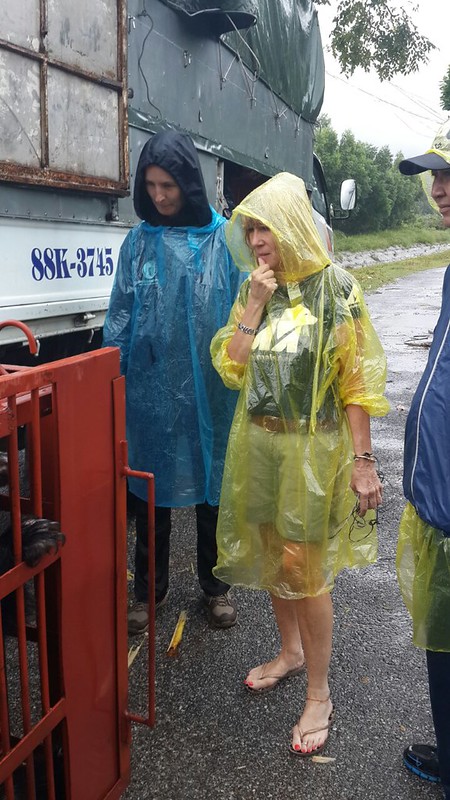




 Healing the hidden wounds
Healing the hidden wounds
 Early summer awakening at the China Bear Rescue Centre
Early summer awakening at the China Bear Rescue Centre
 5 reasons the dog meat trade must end
5 reasons the dog meat trade must end